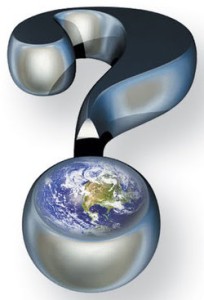
Arquivo para June 1st, 2017
Epistemology and crisis of thought
The British philosopher David Hume, in the eighteenth century, writes in the Treatise on Human Nature, a questioning of induction as a valid mechanism for scientific discovery, was the part of this question that Karl R. Popper in The Logic of Scientific Research by Karl R Popper (1902-1994), brought the “novelty” in the philosophy debate of science by repeating the Humean idea.
Treatise on Human Nature, a questioning of induction as a valid mechanism for scientific discovery, was the part of this question that Karl R. Popper in The Logic of Scientific Research by Karl R Popper (1902-1994), brought the “novelty” in the philosophy debate of science by repeating the Humean idea.
The problem formulated by Popper was based on the separation of metaphysics (pseudoscience) and true science, “empirical science”, but Thomas Khun (1922-1996) in The Structure of Scientific Revolutions Will question this.
The history of science would already demonstrate this, that is, that periodically, one paradigm was replaced by another, although this is not by a simple observation incompatible with the theory, as it attested the principle of the falsperabilidad popperian, what happens is a change of Thought, he quotes Copernicus, but Heisenberg with the quantum principle and Albert Einstein with the Theory of Relativity are more general.
The Hungarian mathematician and philosopher Imre Lakatos (1922-1974) followed Popper’s ideas and the principle of falsifiability by softening it: the history of science would demonstrate that theories were never completely abandoned, even when refuted.
Paul Feyerabend (1924-1994) developed a radically innovative argument in his work suggestively titled Against Method, stating that there was never the possibility of establishing objective criteria for the evaluation of scientific theories. Denying the whole method of logical positivism, which defended a unique methodological standard.
However, this crisis has already deepened, we have already mentioned Edmund Husserl, who looked at the crisis of the European sciences in the development of his phenomenology, among several statements we find: “With the awakening of the reflection of the relation between knowledge and the object, abyssal obstacles . Knowledge, the most obvious thing in natural thought, suddenly appears as a mystery, “and will have between notable later influences like Heidegger and Gadamer, who take up the ontological question, where consciousness is essential.
The Portuguese sociologist Boaventura de Souza Santos, in his writing A discourse on the sciences, revalues the controversy introducing that the attenuation of the distinction between organic and inorganic, human and nonhuman would be useless, but the question of the conscience is not touched.
Edgar Morin, H.G. Gadamer, Lévinas and Ricoeur, and other contemporary thinkers agree that it takes a turn in thought, wrapped in complexity and experiences

